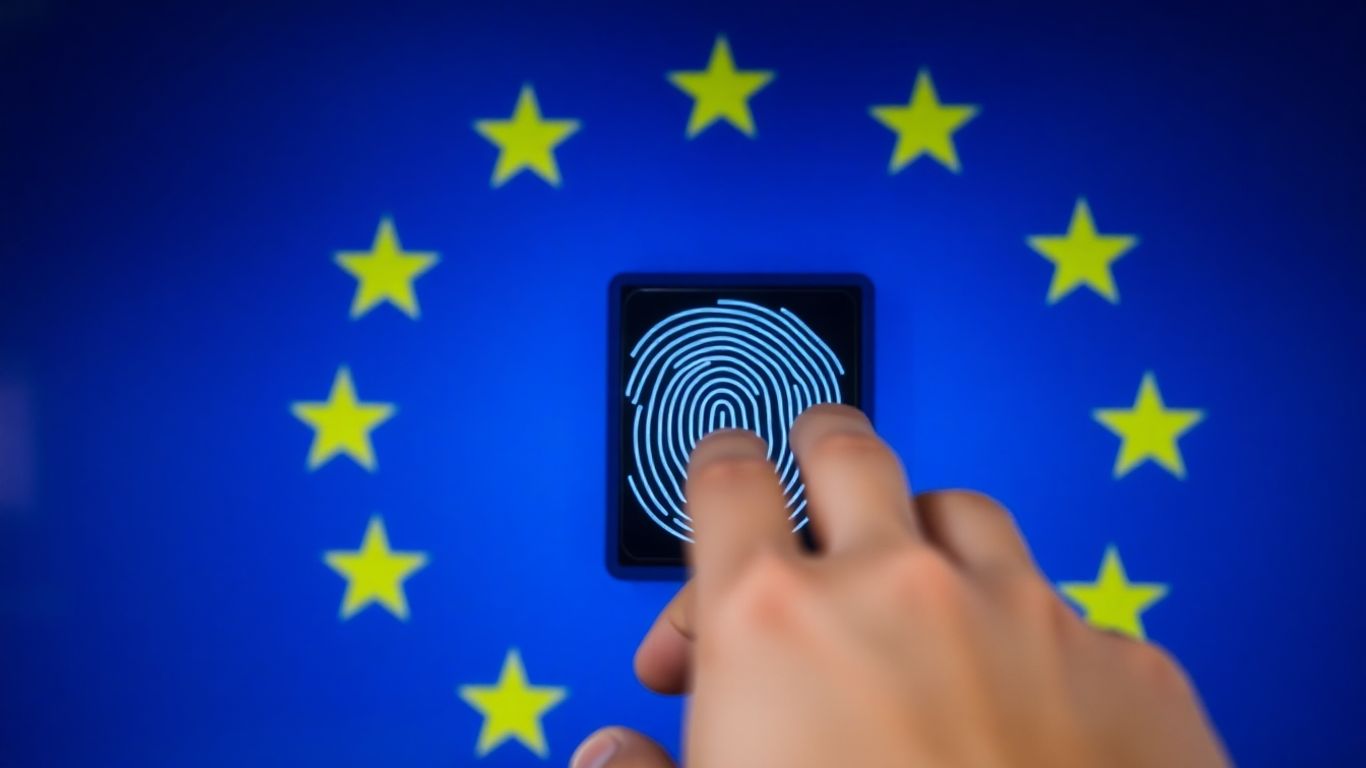Bulgaria has begun implementing the European Union’s new Entry/Exit System (EES), a digital framework designed to modernize border control for non-EU nationals. Starting October 12, travelers entering the Schengen area will undergo biometric data collection, including fingerprints and facial images, replacing traditional passport stamping. This phased rollout aims to enhance security, combat fraud, and streamline border crossings across participating EU member states.
Key Takeaways
- Non-EU nationals must provide biometric data (fingerprints, facial image) upon first entry into the Schengen area.
- The EES replaces manual passport stamping with a digital record of entry and exit.
- The system aims to improve border security, track overstayers, and prevent identity fraud.
- Implementation is gradual, with full operational status expected by April 2026.
- British citizens, post-Brexit, are subject to these new biometric requirements.
The New Entry/Exit System Explained
The EES is an automated system designed to register travelers from outside the European Union entering and exiting the Schengen Area. This system applies to short stays of up to 90 days within any 180-day period. It will digitally record personal and biometric information, including fingerprints and facial images, at automated kiosks or border control booths.
This data will be linked to the traveler’s passport in a secure digital database. The primary goals are to modernize border management, enhance security by identifying travelers more efficiently, and reduce the potential for identity and document fraud. It also aims to help authorities track individuals who may overstay their visa-free allowance.
Who Is Affected?
All non-EU nationals traveling to participating European countries for short stays will be subject to the EES. This includes tourists, business travelers, and those visiting family or friends. Notably, British citizens, following Brexit, are now considered non-EU nationals and must comply with these new biometric registration requirements when entering the Schengen Area.
The system applies to all Schengen member states except Ireland and Cyprus, and also includes non-EU countries like Iceland, Norway, Switzerland, and Liechtenstein. A comprehensive list of participating countries includes:
- Austria
- Belgium
- Bulgaria
- Croatia
- Czechia
- Denmark
- Estonia
- Finland
- France
- Germany
- Greece
- Hungary
- Iceland
- Italy
- Latvia
- Liechtenstein
- Lithuania
- Luxembourg
- Malta
- Netherlands
- Norway
- Poland
- Portugal
- Romania
- Slovakia
- Slovenia
- Spain
- Sweden
- Switzerland
Biometric Data Collection and Privacy
Upon their first entry into the Schengen area after the system is operational, travelers will need to provide their fingerprints and a facial image. Subsequent entries will require biometric verification, which is expected to be faster than a full data entry. Children under 12 are generally exempt from fingerprinting, though their photo may still be taken. There is no fee associated with registering in the EES.
EU regulations, including the General Data Protection Regulation (GDPR), govern the handling of collected data. Travelers have rights regarding access, correction, and deletion of their data. However, limited data sharing with international organizations or non-EU countries may occur for legal or security purposes.
Gradual Implementation and Potential Challenges
The EES is being implemented gradually over a six-month period. During this transition, some border crossings may still use manual passport checks alongside the new biometric registration, potentially leading to longer queues or confusion. The full digitization of the process is anticipated by April 2026.
While the EES promises improved security and efficiency, travelers, particularly from the UK, should be prepared for the new biometric requirements. Familiarizing themselves with the process and understanding their data privacy rights will be important as the system becomes fully operational across Europe’s external borders.
Sources
- Bulgaria Begins Fingerprint Registration for Foreigners Under New EU Border Rules – Novinite.com, Novinite.com.
- Austria united with Belgium, Bulgaria, Croatia, Czechia, Denmark and Finland Start Collecting Fingerprints
from Today with New European Entry/Exit System, New Travel Update You Need to Know, Travel And Tour World.






